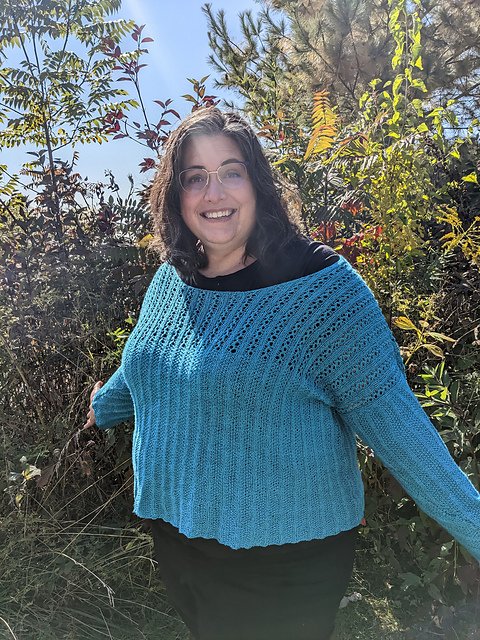Many moons ago, a former co-worker of mine shared a useful metaphor. She compared being emotionally or mentally overloaded with the state of meniscus. That is, when surface tension allows water to actually curve up above the rim of your glass. It will stay there indefinitely at the maximal amount, but add just one more tiny drop and over it runs.
That's how I felt pretty much constantly this month, fully whelmed and just one drop away from over. It's probably why I found most of the books I read this month kind of hum-drum. I simply did not have any extra care or attention to give them, so they didn't give much back to me either. None of them offended me with their badness though (looking at you, Northanger Abbey), so that's something.
God Bless You, Dr. Kevorkian by Kurt Vonnegut. This weird little collection of fictional interviews with the likes of dead people including Adolph Hitler, William Shakespeare, and Sir Isaac Newton is a bit of a head scratcher. I would love to know more of the "why" behind it. Did he have a book contract he needed to fill? Was he doing a favour to a friend at the radio station where these 90 second spots were originally aired? Did he have a larger point? I wish I had taken notes while reading because I know I had moments of being utterly beguiled but the memory of specifics apparently didn't take. Ah well. Maybe not prime Vonnegut, but Vonnegut nevertheless.
Bill Bryson's African Diary by Bill Bryson. It's not much of a book on the Bryson scale of travel writing. Call something an "African Diary," you give me expectations – not the least of which is that it will involve more than one African country. I kept waiting for him to dig in to the adventure, then it ended. This is a challenge with digital library books; no weight in the hand or book jacket to provide clues as to contents. This book was written in support of the charitable organization CARE International. It details a 10-day trip he took to Kenya at their request. (So, why not Bill Bryson's Kenyan Diary, hmmm?) It was meant as a gift with donation. A lovely idea that doesn't make for much of a satisfying library experience.
Dark Places by Gillian Flynn. Here, my friends, is what you call a page turner. Turns out, it was adapted into a 2015 movie starring Charlize Theron. The fact that I had no idea of that until I went searching for a jpeg of the book's cover speaks volumes about the success of the movie. The book , on the other hand, kept me riveted. Libby Day, the hard-to-like protagonist, was just a small girl when her entire family was murdered. Largely on her testimony, her brother is convicted of the slaughter. But what really happened that night? No spoilers here. You should read it yourself.
The Life and Times of the Thunderbolt Kid by Bill Bryson. It's a memoir of Bryson's highly privileged (by his own admission) midwestern childhood. With all the "Make America Great Again" nonsense being slung around, I found myself very reluctant to dig into this book. I just didn't want to have my highly favourable impression of Bryson to be tinged by association with those who suggest that there is some bygone era where everything was better and that the people for whom it wasn't better simply don't matter. Fortunately, Bryson is highly aware that what was an idyll for him had a very dark underbelly. He walks this line quite admirably, conveying both the naivete of a sheltered child and the wisdom of the adult looking back.
The Secret Life of Bees by Sue Monk Kidd. Hey! This novel is yet another that has been made into a movie. I also did not know that. Unlike Bee Time or The Bees (wow, bees are really having a moment for me this year), this book is not about bees as such. Rather, bees offer a recurring motif that signals stages in the protagonist's life and understanding of her world. Lily is a 14 year old white girl who flees her hometown accompanied by the black housekeeper who has been like a mother to her. A lovely story, well-told.
You Can't Touch My Hair: And Other Things I Still Have to Explain by Phoebe Robinson. A stand up comedian and actress, Robinson writes with an engaging, conversational voice a series of personal essays (I guess that's what to call them? she writes a blog and these feel like blog posts) about important and trivial issues. And issues that on the surface could be seen as trivial – hair – but are emblematic of much deeper societal ills. She speaks frankly about the world as she sees it and experiences it. She says, "Don't be lazy. Do your own research. I'm not here to be an encyclopedia for you. But I think there is a way to have a conversation between two people where they are are just sharing information." And that's what this book feels like.
The Portable Veblen by Elizabeth Mckenzie. I want to call this a "quirky little novel," but I feel like that's an unfair reduction of an original, charming, and insightful story about love and family dysfunction, corporate and individual greed, the medical–industrial complex, mental illness, and squirrels. Yup, that about sums it up. Unless you've read this novel, you haven't read this story before. Unlike, say...
The Litigators by John Grisham. As I was reading this story, I was honestly straining to recall if I've actually read it before or just several like it. There's really no new ground here. Scrappy rogue lawyer fighting the system and his own demons. Sound familiar? But that's not to say that I didn't enjoy it, because I absolutely did. When your brain is at capacity, sometimes formulaic is just what you need to unwind. It was a perfect way to usher in the holidays.
So that marks the end of a year of reading. I'd love to close out the year with something profound, but nah. I've got nothin'. Imma keep reading, canning, knitting, sharing in the new year. All the very best to you and yours!












